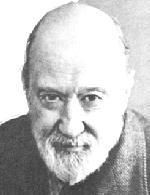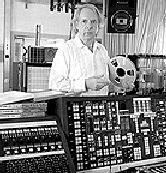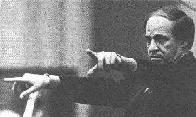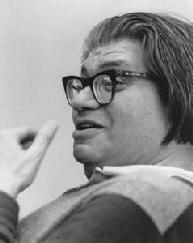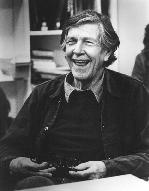
John Cage is perhaps the most important musical
philosopher of the twentieth century. Most of his music
was more significant for the viewpoint it expressed rather
than how well it sounded. Cage introduced randomness and
unpredictability into music, a concept that was foreign to
the aesthetic of the Western world. Most people simply
hate listening to most of what he wrote, but the fact
remains that there is hardly a composer in the world today
who was not in some way directly impacted by what he did.
Cage is shown here with the warmest of smiles. Rather than
being a cold, isolated, ivory tower idealist, he was a
legendary nice guy, a gregarious fellow that everyone
instantly loved. I had the pleasure of meeting him myself,
the first time briefly at a party, and the second when I
phoned him to try and convince him to write a piece of
music for my newly formed rock band. However, he had other
projects going, and was not interested, but he suggested
other works of his we might consider performing. However,
I was interested in an exclusive commission, not merely in
the idea of a rock band performing something by John Cage.
As I indicated in my story, I first became aware of John
Cage when he appeared on television when I was in high
school.
